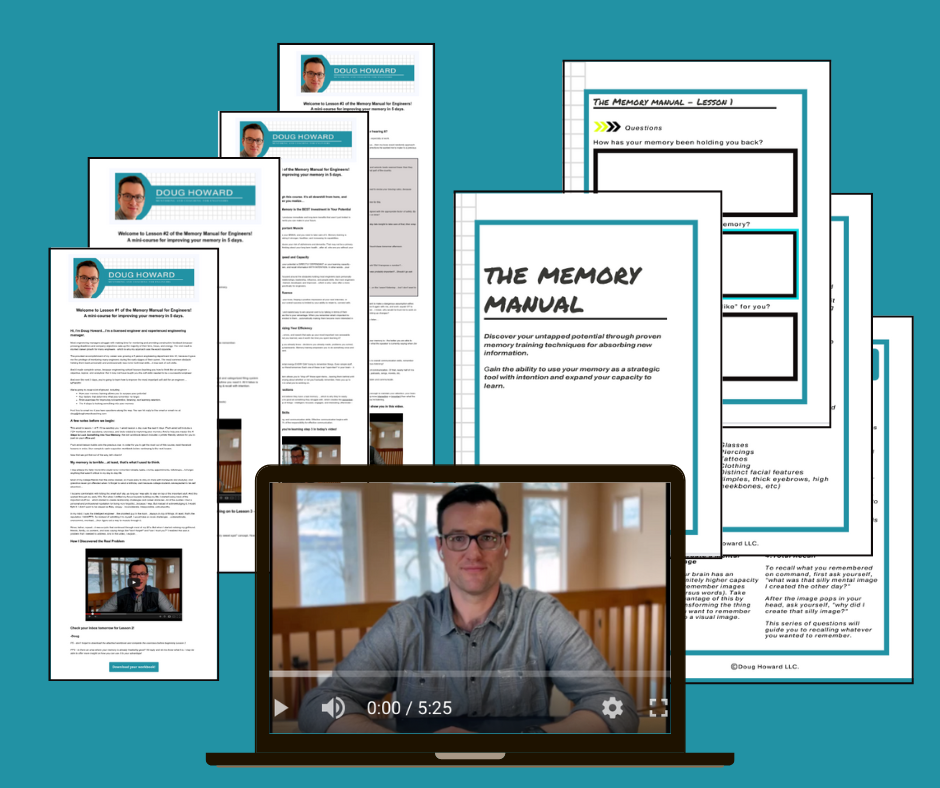Why Engineers Struggle With Soft Skills - How to Improve Your Communication!
Let’s face it - soft skills don’t come naturally to most engineers. But there’s a reason for this…
Engineers have a unique way of thinking, and it creates natural barriers to communication, empathy, and building relationships with the average person - especially in the workplace.
I’m going to explain why this happens, and how you can use this knowledge to your advantage throughout your career.
Why?
Because I'm an engineering manager, mentor, and career coach and I help engineers advance their careers through building soft skills - so that you future-proof your career and create your own opportunities!
Let’s start by clarifying the difference between…
Logic vs Emotions
All people have a natural preference when it comes to how you take in information and what factors you consider when making decisions.
You either prefer using LOGIC or EMOTIONS.
Whether you realize it or not, most of the things you do require your brain to make a decision - such as interpreting what someone says and determining how you will respond.
If you naturally prefer logic - and most engineers do - more times than not, you're going to be firm, rational, and fair when making decisions. You're also going to be most interested in objective facts and logical analysis.
You will use your head to make decisions, instead of your heart. And you will easily be able to see inconsistencies in other people's logic - while placing a high value on truth and following the rules.
To you, things will appear to be black & white - but you’ll have trouble seeing the gray areas in between - while using words like “think” and “know” to describe your thoughts.
For example,
I think this is a good idea.
Or
What do you think about this decision?
Meanwhile, about 70% of the population naturally prefers using EMOTIONS (instead of LOGIC) to make decisions - which is why most people are more likely to be passionate, caring, and emotional in their decision making process.
They're going to be more interested in subjective considerations like people and feelings - while using their heart (instead of their mind) to make decisions.
They'll understand how other people feel and place a high value on communicating with diplomacy and tact. They will be able to see the gray areas and the exceptions to the rule, as well - which is why they're more comfortable with bending the rules.
An emotional person is most likely gonna use the word feel to describe their thoughts - with statements like,
I feel like this is a good idea.
Or
How do you feel about this decision?
Most engineers lean heavily on logic - otherwise they probably wouldn't be very good engineers.
It's why most engineers find it easy and natural to take things like facts, rules, knowledge, and “what is known” into account. But they tend to ignore things that an emotional person would consider - such as “the exception to the rule” or how other people are impacted by actions and decisions.
What Is Your Natural Preference?
To figure out which type you are, put yourself in this situation…
Let's say you were an engineering manager and you were tasked with deciding whether or not to fire an employee - and the decision is 100% up to you.
What factors would drive your decision?
A logical person would approach the dilemma objectively - considering things like,
What was this person's quality of work?
Did this person complete their projects on time?
Did they show up to work on time?
Did they break any company rules or policies?
Meanwhile, an emotional person would attack this decision the complete opposite way.
They would place a much heavier weight on subjective considerations like,
How long has this person been with the company?
How will unexpectedly losing their job impact this person?
How quickly will they be able to find another job?
Will this person be able to recover from this?
How will this decision impact the department morale?
Why Engineers are at a Disadvantage
Around 70% of people prefer using emotions over logic to make decisions - this puts engineers at a huge disadvantage in the workplace!
In order to effectively communicate, build relationships, and win people over - you need to be able to empathize with people, consider things from their point of view, and make them feel understood.
In short, this is why engineers aren't naturals when it comes to people skills.
Balancing Logic With Emotions is Key!
Before you dismiss an emotional person's considerations, I wanna make sure this next point is crystal clear…
Both LOGIC and EMOTIONS are completely rational ways to approach decision making - neither are more or less intelligent, either. It's simply a matter of perspective
But making the best possible decision in any given scenario requires a balanced perspective - where you're viewing the problem from every possible angle by weighing logical and emotional considerations.
Now, you might be thinking…
If I'm a logical person, how do I take emotional considerations into account?
If you're a logical person, it doesn't mean you're incapable of emotional considerations - it just means logic is your natural preference. And it also means that you use logic more frequently - because it's where you're stronger and most comfortable.
But everyone is physically capable of developing and using both logic and emotions and incorporating it into your decision making process.
It's similar to a right-handed person using their left hand. Your left hand is physically capable of doing everything that your right hand is capable of. But it takes intentional training and effort to get it there.
A good first step you can take towards engaging the emotional side of your brain is by learning simple memory training techniques.

